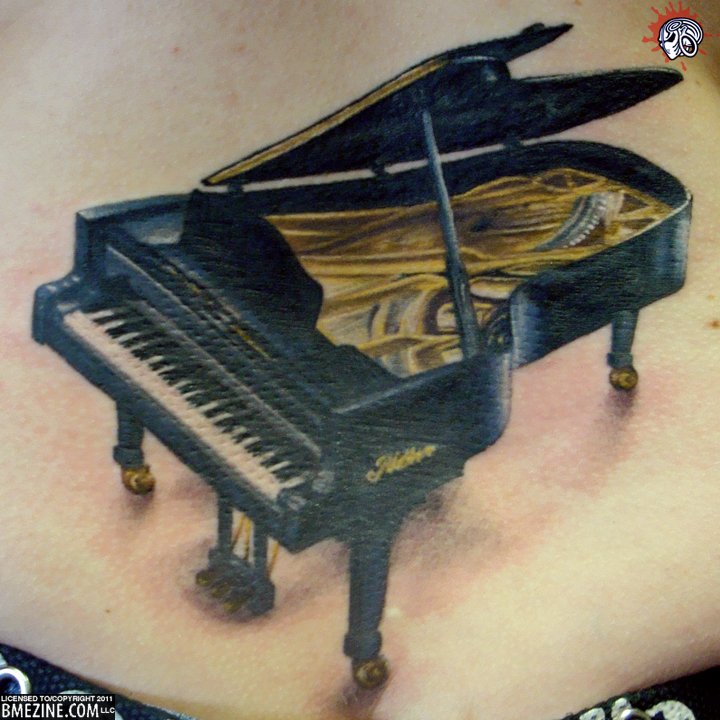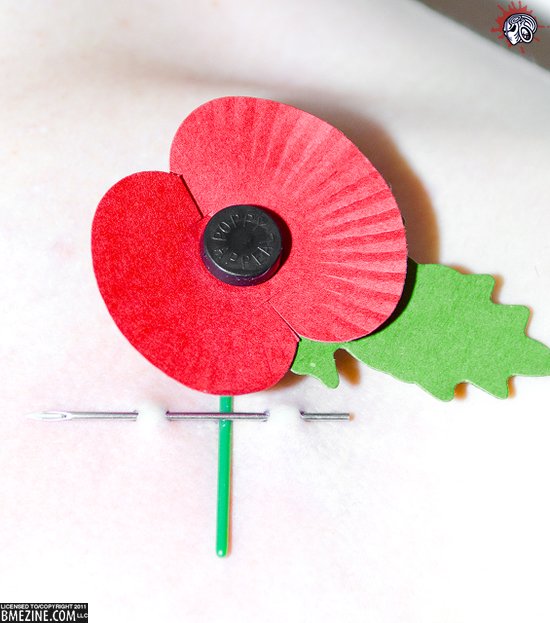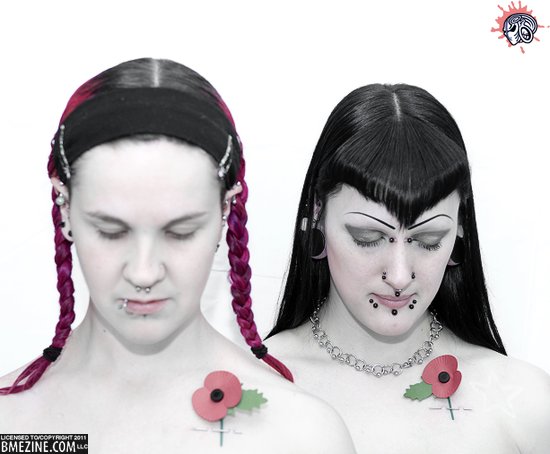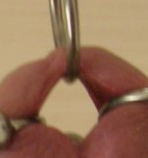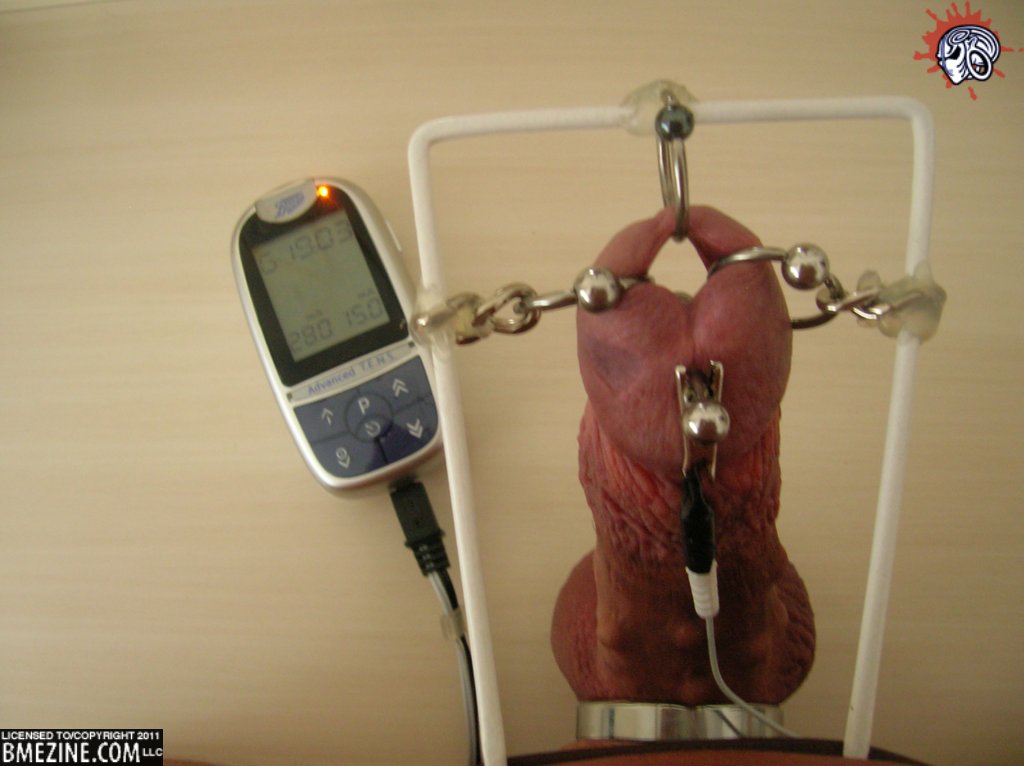So the day is almost done, which means it’s time for the first news post of November. First off, a big thanks to everyone who sent in articles this week. Quite a few of the stories below were sent to me through e-mail, so if you happen to come across one in your travels around the web, please send me the links so I can include it in next week’s news.
We all know sports fans can get a little overzealous when it comes to supporting their favorite team. Well this week in Texas a few fans got a little preemptive in their celebrations.
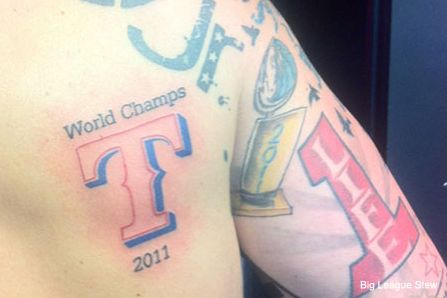
Says our tipster:
My friend had this done before Game 7. Maybe you can show the world how big of an idiot he is, or just a die hard fan.
Oh, so many thoughts here. Did he have a deposit down on the session before Game 7 and just decided to go ahead with the tattoo in an attempt to reverse the bad juju from Game 6? Did he originally get that NBA Finals tattoo after the Dallas Mavericks took a 2-0 lead in 2006? Does he know that one angry Yahoo! commenter would have quibbled with the “world champs” line even if the Rangers had won because they did not beat a team from Japan? Is he now hoping he can one day change that last “1″ to a “4″?
But it wasn’t just Texas baseball fans…
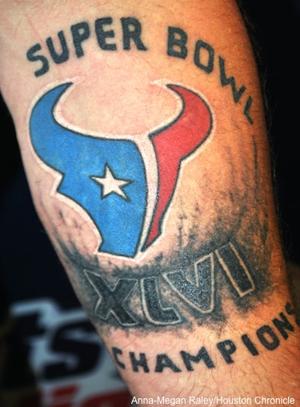
There’s NFL fandom and then there’s getting a huge tattoo on your left forearm to honor your favorite team. There’s NFL optimism and then there’s getting a huge tattoo on your left forearm to honor the Super Bowl championship that your favorite team has yet to (and almost certainly won’t) win.
Meet the left forearm of Chris Brown. The Midland, Texas, resident tattooed it recently to commemorate the Super Bowl title he hopes his favorite team, the Houston Texans, will soon win. For his sake it better be soon. Brown’s tattoo also includes the specific Super Bowl he expects the Texans to win: Super Bowl XLVI, to be played this February in Indianapolis.
So confident is Brown in the Texans that he had the tattoo artist include shading behind the roman numerals so that he couldn’t go back and change it. Forget that Houston has never made it to the NFL playoffs, let alone won a postseason game. Brown is a man with confidence … and hopefully a lot of long-sleeved shirts in his dresser.
Well, at least with the football one he’s got a few months before he knows if it was a bad idea or not.
There’s more news to come, so keep on reading..
Alright, so as many of you know, Hermosa Beach was ground zero for a court battle that eventually proclaimed tattoo parlours protected under the first amendment. That means cities can no longer outlaw studios (well, in the US anyway). However that didn’t stop a group of citizens from trying to get the city to kick them out. Well this week a judge has issued what will probably the the final ruling in this case, and the tattoo studios have won.
The legal fight over tattoo regulations in Hermosa Beach has virtually come to an end. This week, Hermosa Beach claimed victory in its battle against Citizens United, which was suing the city over zoning changes made to accommodate tattoo businesses in town. Citizens United was hoping to get the city’s tattoo regulations overturned. But on Nov. 1, Superior Court Judge James Chalfant ruled in favor of Hermosa Beach stating that it is not liable for claims made by Citizens United because the case was filed outside the statue of limitations. City Attorney Michael Jenkins said he is very pleased with the judge’s ruling. “We are pleased with the court’s decision because now the city enjoys certainty,” Jenkins said. “Tattoo studios are limited to those that comply with the standards adopted by the City Council.”
Citizens United was trying to force the city to create a more restrictive tattoo studio ordinance. Last fall, in the wake of a Ninth Circuit Court ruling that tattoo businesses are protected by the First Amendment, the City Council adopted a new law dictating that tattoo parlors can be located only along Hermosa Avenue, Pacific Coast Highway, Aviation Boulevard and at Pier Plaza.
However, when Hermosa Ink opened at 802 Hermosa Ave., adjacent to a residential zone, nearby homeowners formed Citizens United and launched a lawsuit in hopes of overturning the current ordinance. The group was hoping to restrict tattoo shops even more by insisting they be 100 feet from residences, 200 feet from schools and parks and close by 9 p.m. instead of 10 p.m. and not offer body piercing. Citizens United argued that the city did not properly publish notification about public hearings on tattoo zoning and regulations before making them official. Fangary also said the council should have first gone through its Planning Commission for suggestions instead of solely dealing with new regulations and zoning changes. But Chalfant stood behind Hermosa Beach’s argument that the claims should be dismissed because they were filed past the 90-day statue of limitations window.
So hopefully this will be the last we hear about this story. However there are still cities out there that continually push against tattoo studios opening up, and each time the Hermosa Beach ruling steps up to protect the artists.
Tattoo parlors are entitled to the same First Amendment protections as the artwork they produce, meaning government is limited in restricting where they can go, the Arizona Court of Appeals ruled Thursday. In a precedent-setting decision, the three-judge panel rejected arguments by the city of Mesa that it was entitled to reject an application to open a tattoo shop because nearby residents considered it “incompatible’’ with the neighborhood. Judge Ann Scott Timmer, writing for the unanimous court, said cities can consider citizen viewpoints in deciding whether a particular business is appropriate to a neighborhood. But she said a city cannot deny a permit to a tattoo parlor “based solely on neighborhood hostility born from perceptions about tattoo parlors that may or may not be accurate.’’
A Mesa ordinance requires certain kinds of businesses, including tattoo parlors, to obtain special use permits before operating in commercial areas. Among the requirements is being at least 1,200 feet from an existing tattoo shop or school and be “compatible with surrounding uses.’’
While recommendations are made by a planning officer or board, the Council has the final say. In this case, the planning board recommended approval, with conditions, including taking steps to limit loitering, restricting the days and hours of operation, cooperating with police to identify known gang tattoos and refusing to apply racist or gang tattoos. Ryan and Laetitia Coleman, the owners of Angel Tattoo, agreed to those restrictions. But the Council voted 6-1 to deny the permit after hearing concerns from neighbors about the shop possibly drawing crime and reducing property values. Only Mayor Scott Smith was in support.
A trial judge rejected their claim of First Amendment violations, concluding the Council’s decision “was a reasonable and rational decision based on community concerns.’’ Timmer said some courts have concluded that administering a tattoo is not communication entitled to constitutional protections. But she said that defies logic. “The sole purpose of a tattoo is to communicate thoughts, emotions or ideas as rendered by the tattoo artist,’’ the judge wrote. She said providing less protection to tattoos would require courts to differentiate between Salvador Dali’s “The Persistence of Memory’’ and a tattoo of melting clocks “merely because the former is painted on canvas while the latter is inked on a bicep.’’ What all that means, Timmer wrote, is that any restrictions by a city on tattoo parlors must be examined closely to see if they improperly infringe on First Amendment rights.
It seems that all around the world people are beginning to recognize that modified people aren’t just sailors or bikers. Over in China the People’s Liberation Army is now allowing recruits that are tattooed on the face and neck to enlist.
Seeking to broaden its appeal to China’s better-educated and perhaps more hip youth, the People’s Liberation Army has dropped a longtime bar to enlisting in the service: now, recruits can sport tattoos on their faces and necks. Recruits with facial or neck tattoos will now qualify for service if the decorations are no larger than two centimeters wide, or about 0.8 inches. The new weight rules permit a recruit to weigh as much as 25 percent more or 15 percent less than the army’s standard, as opposed to 20 and 10 percent in the past.
The ministry also began an effort to lure more university students to the military, offering them a 6,000 renminbi discount on annual tuition — around $944 — if they take a break from their studies to enlist. Although military service is technically compulsory, the draft is seldom needed because there are more than enough volunteers to fill the ranks of the 2.3-million member force. The newly relaxed rules seek to attract better-educated recruits for a military that increasingly relies on technically sophisticated weaponry. Tattoos, in particular, were once scorned, but they have become faddish among the savvier urban youth that the People’s Liberation Army hopes to attract.
There is a precedent: China’s most famous tattoo belonged to a Southern Song dynasty general, Yue Fei, who served in the 12th century. Folklore states that he once quit the army and returned home after his field marshal deserted, only to be berated by his mother for turning his back on his country. On that back, she then tattooed the words, “loyalty to the nation.” Yue Fei returned to battle and became one of the nation’s most celebrated warriors before being framed by a rival and executed.
With Halloween happening last week, its understandable that some emergency room nurses may get confused when a person walks in covered in blood and missing an arm. However in Washington when a man walked in on the 28th, he really was missing an arm.
Washington man loses his arm from a homemade guillotine. The guillotine unexpectedly dropped on his shoulder Thursday morning at a camp he was living at, severing his arm. He left the arm behind after the accident and rushed to Bellingham Urology Specialists. Evelyn Leuther, who works at the clinic, told CBS Seattle a woman passing by said, “I hope that’s a Halloween costume,” referring to the man missing his arm at the shoulder. But the gore was real. Seconds later, another woman ran by screaming for someone to call 9-1-1.
Doctors and nurses from the office rushed to help. “It was a sight,” she said. The scene lasted for 10 minutes before an ambulance took him to the hospital two blocks away. Officers checked a wooded area near the clinic and discovered a camp believed to be the temporary home of the individual. At the camp, officers located the severed arm and a homemade guillotine, which the police then dismantled.
The condition of the victim is not known at this time, but Bellingham police said in a release he was being transferred to Harborview in Seattle for further treatment.
Now it could just be the fact that I work for BME, but something about this story just feels like it was a DIY amputation. Now I could be wrong, so I’ll leave it up to you. Do you think this was intentional?
We all know that tattooing the sclera, while extremely dangerous, can be done. However changing the color of the eye itself has been pretty much impossible to do without contact lenses, or blinding the person. Well that is all going to change soon with a new procedure that a doctor claims can turn brown eyes blue.
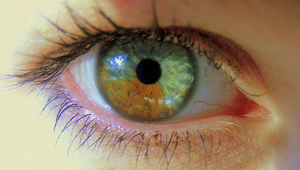
If you’ve always wanted blue eyes, but have brown instead, there might be something you can do to change that. A doctor in Laguna Beach called Stroma Medical says it can use laser technology to change brown eyes to blue — permanently — without damaging vision. Dr. Gregg Homer has been working on the technology for 10 years. Homer says it is possible because even brown-eyed people have blue eyes underneath the brown layer of pigment.
“We use a laser, and it’s tuned to a specific frequency to remove the pigment from the surface of the iris,” Homer tells KTLA. The procedure takes about 20 seconds. When laser energy is absorbed by the eye’s brown pigment, Homer says the pigment tissue changes and then the body sheds the altered tissue, changing brown eyes to blue within two to three weeks. The brown tissue never regenerates.
Homer says tests have shown no signs of tissue damage. He still has another year of research to complete on the procedure. Researchers believe the procedure will be available outside the United States in 18 months, and in the U.S. in three years. It will cost about $5,000.
Someone should write a song about this.
Today’s last story is a story of redemption and recovery. It’s been floating around for a week or so now, so some of you may have seen small snippets, but it was SeattlePI that first brought this story to light. It’s the tale of Bryon Widner, a former bonehead skinhead who turned his back on the white supremacist movement, and in the process removed all of his former neo-nazi markings. I’m not going to copy it all out, but I will provide some snippets. I encourage you to read both parts of this story which you can find at these links: Part one. Part two.
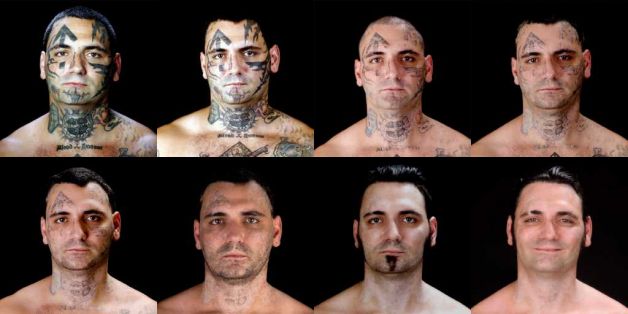
People grabbed their children when Bryon Widner swaggered into a store, lowered their voices when he entered a restaurant, sidled away when he strode up to a bar. He reveled in it — the fear he inspired, the power. It made him feel like Superman. He had symbols of racist violence carved into his face and the letters HATE stamped across the knuckles of his right hand — the hand that knocked out countless victims, sometimes leaving their teeth embedded in his skin. “Blood & Honour” was tattooed across his neck, “Thug Reich” across his belly, swastikas adorned his shaved scalp. On his forehead, a thick, black, upward-pointing arrow symbolized his willingness to die for his race.
By the time he was 30, Widner had spent a total of four years in jail, accused of murder and other charges, though he was never convicted of a major crime. Victim intimidation, he says, took care of that. And then he met Julie Larsen. Like Widner, Larsen’s arms and legs were covered with neo-Nazi symbols — iron crosses, a Totenkopf skull, axes crossed into a swastika, the Nazi salute “sieg heil.” She posted regularly on the Internet forum, Stormfront. Its motto: “White Pride, World Wide.”
And she was active in The National Alliance, a once-powerful white supremacist organization founded by William Pierce, whose writings called for the extermination of Jews and the violent overthrow of the Federal government — and had inspired the 1995 bombing of the Oklahoma City federal building that left 168 people dead. But by her 30s, the single mother of four was questioning her racist beliefs. She grew tired of telling her children they couldn’t watch certain Walt Disney movies because Hollywood was controlled by Jews, or listen to rap music, or eat Chinese or Mexican food. After struggling to put an abusive marriage to a skinhead behind her, she yearned for something simpler. “I just wanted a normal family life,” she said. And to his great surprise, Widner discovered that was what he wanted, too.
But leaving a life of hate would not be easy when it was all that he had known. And when his past was tattooed all over his face.
Like I said, it’s something that you need to read from start to finish to truly get an understanding of what he went though both physically and emotionally.
And that’s it for this week. Have a great weekend everyone and I’ll see you back here Monday.
